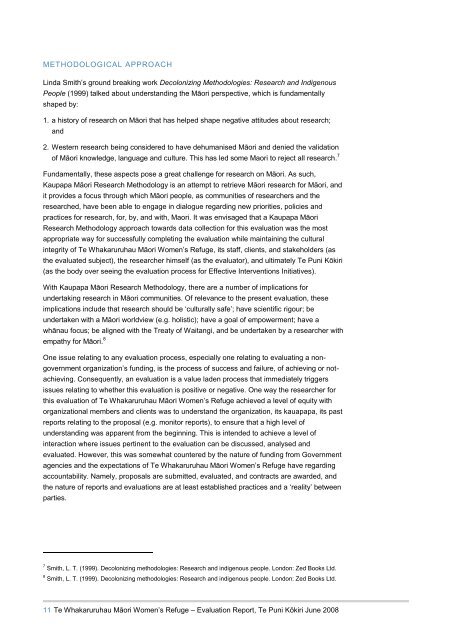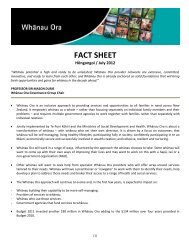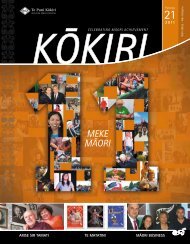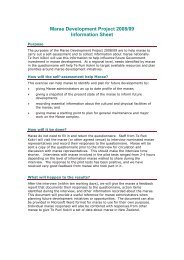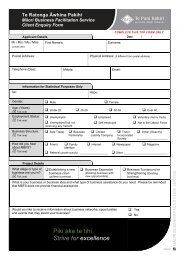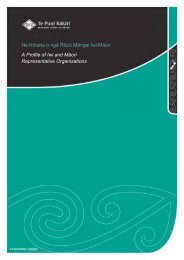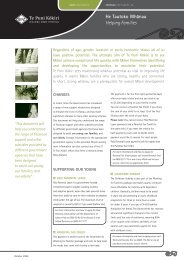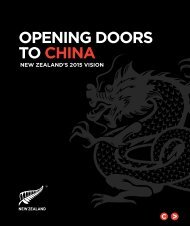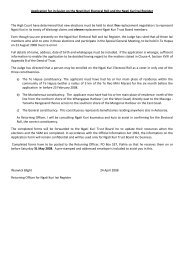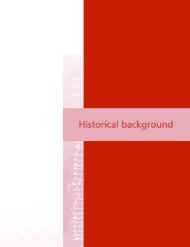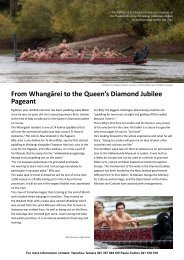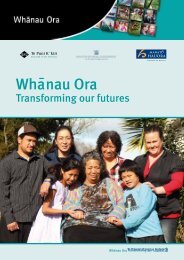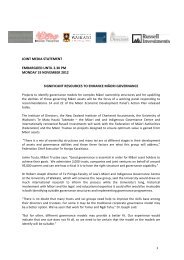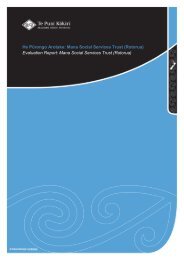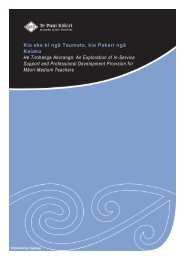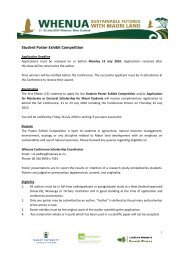Evaluation Report: Te Whakaruruhau Maori ... - Te Puni Kokiri
Evaluation Report: Te Whakaruruhau Maori ... - Te Puni Kokiri
Evaluation Report: Te Whakaruruhau Maori ... - Te Puni Kokiri
Create successful ePaper yourself
Turn your PDF publications into a flip-book with our unique Google optimized e-Paper software.
METHODOLOGICAL APPROACH<br />
Linda Smith‟s ground breaking work Decolonizing Methodologies: Research and Indigenous<br />
People (1999) talked about understanding the Māori perspective, which is fundamentally<br />
shaped by:<br />
1. a history of research on Māori that has helped shape negative attitudes about research;<br />
and<br />
2. Western research being considered to have dehumanised Māori and denied the validation<br />
of Māori knowledge, language and culture. This has led some <strong>Maori</strong> to reject all research. 7<br />
Fundamentally, these aspects pose a great challenge for research on Māori. As such,<br />
Kaupapa Māori Research Methodology is an attempt to retrieve Māori research for Māori, and<br />
it provides a focus through which Māori people, as communities of researchers and the<br />
researched, have been able to engage in dialogue regarding new priorities, policies and<br />
practices for research, for, by, and with, <strong>Maori</strong>. It was envisaged that a Kaupapa Māori<br />
Research Methodology approach towards data collection for this evaluation was the most<br />
appropriate way for successfully completing the evaluation while maintaining the cultural<br />
integrity of <strong>Te</strong> <strong>Whakaruruhau</strong> Māori Women‟s Refuge, its staff, clients, and stakeholders (as<br />
the evaluated subject), the researcher himself (as the evaluator), and ultimately <strong>Te</strong> <strong>Puni</strong> Kōkiri<br />
(as the body over seeing the evaluation process for Effective Interventions Initiatives).<br />
With Kaupapa Māori Research Methodology, there are a number of implications for<br />
undertaking research in Māori communities. Of relevance to the present evaluation, these<br />
implications include that research should be „culturally safe‟; have scientific rigour; be<br />
undertaken with a Māori worldview (e.g. holistic); have a goal of empowerment; have a<br />
whānau focus; be aligned with the Treaty of Waitangi, and be undertaken by a researcher with<br />
empathy for Māori. 8<br />
One issue relating to any evaluation process, especially one relating to evaluating a nongovernment<br />
organization‟s funding, is the process of success and failure, of achieving or notachieving.<br />
Consequently, an evaluation is a value laden process that immediately triggers<br />
issues relating to whether this evaluation is positive or negative. One way the researcher for<br />
this evaluation of <strong>Te</strong> <strong>Whakaruruhau</strong> Māori Women‟s Refuge achieved a level of equity with<br />
organizational members and clients was to understand the organization, its kauapapa, its past<br />
reports relating to the proposal (e.g. monitor reports), to ensure that a high level of<br />
understanding was apparent from the beginning. This is intended to achieve a level of<br />
interaction where issues pertinent to the evaluation can be discussed, analysed and<br />
evaluated. However, this was somewhat countered by the nature of funding from Government<br />
agencies and the expectations of <strong>Te</strong> <strong>Whakaruruhau</strong> Māori Women‟s Refuge have regarding<br />
accountability. Namely, proposals are submitted, evaluated, and contracts are awarded, and<br />
the nature of reports and evaluations are at least established practices and a „reality‟ between<br />
parties.<br />
7 Smith, L. T. (1999). Decolonizing methodologies: Research and indigenous people. London: Zed Books Ltd.<br />
8 Smith, L. T. (1999). Decolonizing methodologies: Research and indigenous people. London: Zed Books Ltd.<br />
11 <strong>Te</strong> <strong>Whakaruruhau</strong> Māori Women‟s Refuge – <strong>Evaluation</strong> <strong>Report</strong>, <strong>Te</strong> <strong>Puni</strong> Kōkiri June 2008


